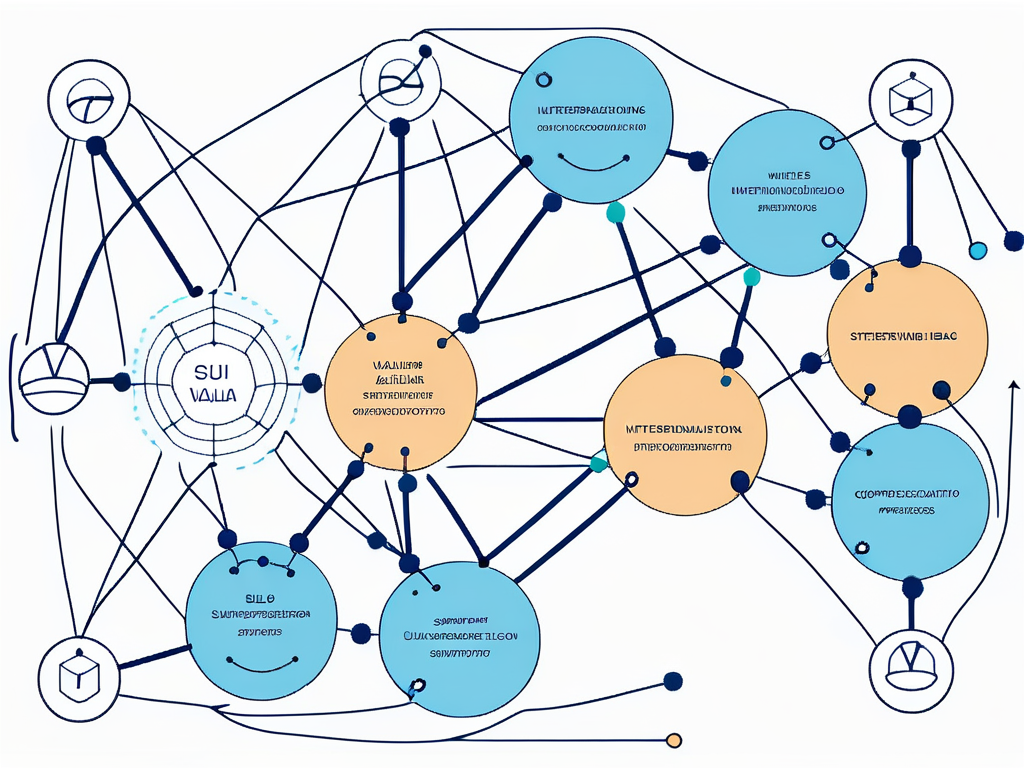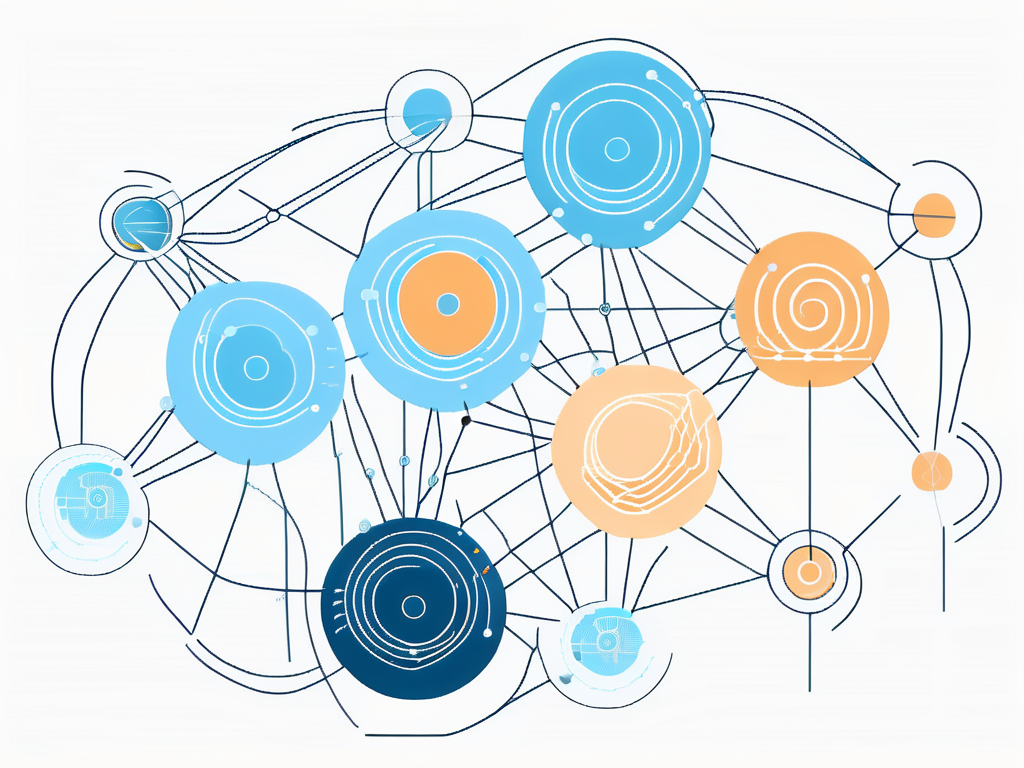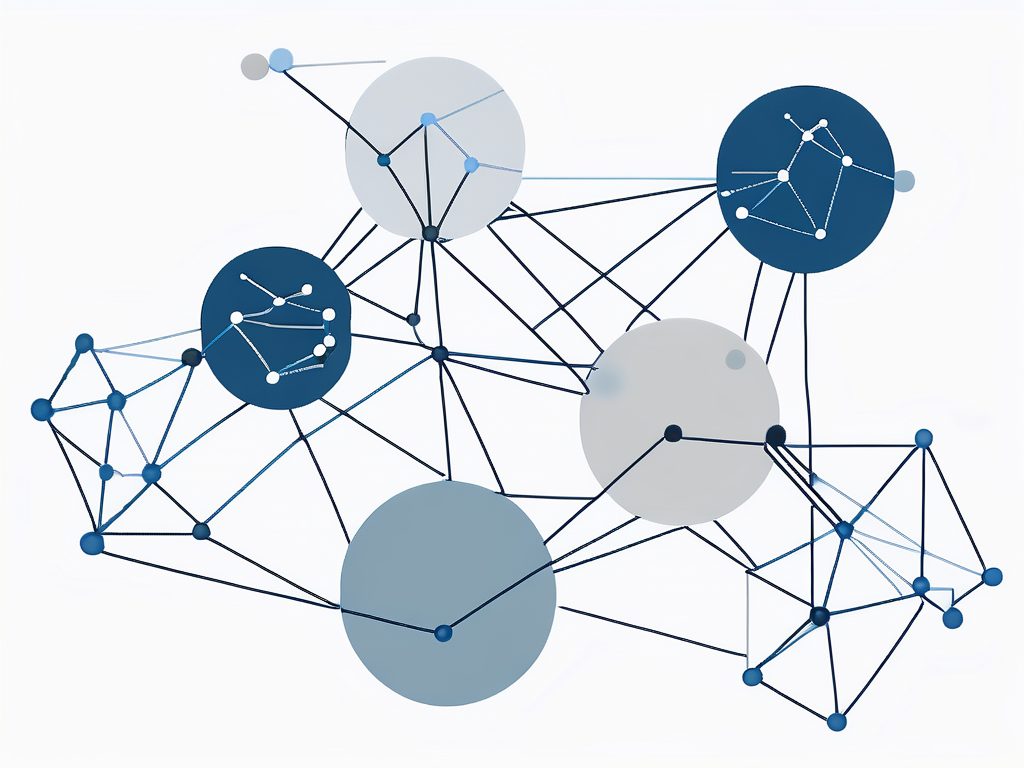The rise of blockchain technology and decentralized networks has led to a significant increase in the importance of validator networks, particularly the SUI (Scalable User Interface) Validator Networks. As we delve into the nuances of these networks, we will explore both the challenges they face and the opportunities they present for further development and application.
Understanding SUI Validator Networks
SUI Validator Networks serve as the backbone of decentralized systems, facilitating transactions and maintaining the integrity of the blockchain. These networks are composed of validators that verify transactions, secure the network, and participate in consensus mechanisms. Below is an overview of some key concepts surrounding SUI validator networks.

The Concept of SUI Validator Networks
SUI Validator Networks are designed to ensure that all transactions on the network are validated quickly and accurately. They rely on a certain number of validators to come to a consensus about the state of the network, thereby increasing trust and stability. This concept is rooted in the core principles of decentralization, which seeks to distribute power and control among numerous stakeholders instead of a select few. The architecture of these networks allows for a more resilient system, as the failure of one or several validators does not compromise the overall functionality of the network. This redundancy is crucial in maintaining operational continuity and user confidence.
Key Components of SUI Validator Networks
At the heart of SUI Validator Networks are several key components:
- Validators: Participants who validate transactions and earn rewards for their efforts.
- Consensus Mechanisms: Algorithms that ensure all validators reach an agreement about the state of the network.
- Rewards System: Incentives designed to motivate validators to engage in the network's upkeep.
- Smart Contracts: Self-executing contracts with terms directly written into code, increasing efficiency and reducing risks.
These components work in synergy to maintain and enhance the functionality of SUI Validator Networks. The validators, for instance, are not just passive participants; they actively engage in the network's governance by proposing and voting on changes, which fosters a dynamic ecosystem. Moreover, the rewards system is intricately designed to balance the incentives for validators, ensuring that they remain committed to the network's health while also attracting new participants. This balance is vital for the long-term sustainability of the network, as it encourages a diverse range of validators with varying expertise and resources to join, thereby enriching the network's capabilities.
In addition to these components, the role of smart contracts cannot be overstated. They not only automate processes but also enhance trust among users by eliminating the need for intermediaries. This leads to faster transaction times and lower costs, making SUI Validator Networks an attractive option for developers looking to create decentralized applications. As the ecosystem evolves, the integration of advanced technologies, such as artificial intelligence and machine learning, into these networks could further optimize transaction validation processes and predictive analytics, paving the way for even more robust decentralized solutions.
The Evolution of SUI Validator Networks
The development of SUI Validator Networks has undergone significant transformations since their inception. Understanding this evolution provides insights into current practices and future directions.

Early Development and Adoption
In the early stages, SUI Validator Networks were primarily experimental, with limited adoption among users and developers. However, as decentralized applications gained traction, so too did the need for robust validator networks. The initial focus was on creating a seamless user experience, which led to a surge in interest. Developers experimented with various consensus mechanisms and governance models, seeking to balance decentralization with performance. This period laid the groundwork for the foundational principles that would guide future innovations.
Current Trends in SUI Validator Networks
Today, SUI Validator Networks are evolving rapidly, driven by several factors:
- Increased Investment: Venture capital and institutional investments are pouring into validator networks.
- Technical Enhancements: Innovations in technology are improving efficiency and security.
- Community Engagement: A higher emphasis on community involvement is shaping network governance.
These trends are leading to more sophisticated networks, which in turn cater to an expanding user base. Furthermore, the integration of advanced cryptographic techniques and scalability solutions, such as sharding and layer-2 protocols, is enhancing the performance of these networks. As a result, validators are now able to process transactions at unprecedented speeds, making the networks more attractive for developers looking to build high-performance decentralized applications.
Moreover, the role of community governance has become increasingly significant. With the rise of decentralized autonomous organizations (DAOs), stakeholders are now more empowered to participate in decision-making processes that affect the network's future. This shift not only fosters a sense of ownership among users but also encourages a diverse range of perspectives, ultimately leading to more resilient and adaptive validator networks. As these networks continue to mature, the interplay between technology, investment, and community will undoubtedly shape their trajectory in the coming years.
Challenges in SUI Validator Networks
Despite their growth and potential, SUI Validator Networks face several challenges that could impede their progress. It is crucial to address these issues to ensure the long-term viability of these networks.

Technical Difficulties and Solutions
Technical hurdles are among the most significant challenges confronting SUI Validator Networks. Scalability issues, latency, and inefficiencies can disrupt transactions. However, several solutions are emerging:
- Layer 2 scaling solutions allow for processing off-chain transactions to enhance speed.
- Improvements in network architecture can lead to better reliability.
- Ongoing research into algorithm optimization promises to minimize computational overhead.
These solutions aim to create a more resilient network environment. Furthermore, the integration of sharding techniques could allow for parallel processing of transactions, significantly boosting throughput. As the demand for decentralized applications increases, the ability to handle a higher volume of transactions without compromising speed or efficiency becomes critical. The continuous evolution of consensus mechanisms also plays a pivotal role in addressing these technical challenges, ensuring that SUI Validator Networks can adapt to the ever-changing landscape of blockchain technology.
Regulatory and Compliance Issues
With the rise of decentralized technologies, regulatory scrutiny is intensifying. Governments worldwide are now focusing on how to categorize SUI Validator Networks within existing legal frameworks. This can create uncertainty for stakeholders. Validators and developers must remain proactive:
- Engage with regulators to shape policies.
- Establish transparent compliance mechanisms.
Doing so can foster a more conducive environment for innovation and growth. Additionally, the development of industry standards could provide a framework for compliance, helping to alleviate concerns from both regulators and users. Collaboration among stakeholders, including validators, developers, and regulatory bodies, can lead to the creation of best practices that not only enhance compliance but also build trust within the community. As the landscape evolves, staying ahead of regulatory changes will be essential for maintaining the integrity and sustainability of SUI Validator Networks.
Security Concerns in SUI Validator Networks
Security remains a paramount concern, as vulnerabilities can be exploited. Attacks on validator nodes can lead to severe repercussions for the network. To mitigate these risks, implementing robust security measures is essential:
- Utilizing multi-signature wallets can enhance security.
- Regular auditing of smart contracts helps identify weaknesses.
- Education and training for validators on best practices can reduce human error.
These practices underscore the importance of prioritizing security protocols. Moreover, the adoption of advanced cryptographic techniques, such as zero-knowledge proofs, can further bolster security by ensuring transaction privacy while maintaining network integrity. As cyber threats evolve, establishing a culture of security awareness among all participants in the network is critical. Regularly updating security protocols and conducting penetration testing can help identify potential vulnerabilities before they can be exploited, ensuring that SUI Validator Networks remain resilient against attacks and can maintain user confidence in their operations.
Opportunities in SUI Validator Networks
While challenges are present, SUI Validator Networks also offer numerous opportunities for innovation and growth. Recognizing these can empower stakeholders to navigate the landscape more effectively.
Potential for Innovation and Improvement
Innovation is a driving force behind the evolution of SUI Validator Networks. Emerging technologies such as artificial intelligence and machine learning can optimize decision-making processes within networks. Additionally, new economic models are enabling novel incentive structures to engage more validators.
Market Expansion and Profitability
The demand for decentralized solutions continues to rise, leading to vast market opportunities for SUI Validator Networks. As businesses increasingly adopt blockchain technology, the potential for revenue generation grows. Moreover, ventures that align with sustainability and ethical considerations may attract further investment and user trust.
The Role of SUI Validator Networks in Future Technologies
Looking ahead, SUI Validator Networks are anticipated to play a significant role in the deployment of future technologies, such as Internet of Things (IoT) integrations and decentralized finance (DeFi). Their decentralized nature can offer solutions to the complexities of these emerging fields, providing secure and efficient systems.
The Future of SUI Validator Networks
The trajectory of SUI Validator Networks is rife with possibilities. By understanding emerging trends and preparing accordingly, stakeholders can position themselves favorably for future developments.
Predicted Growth and Trends
Analysts forecast significant growth in validator networks as more developers and businesses embrace blockchain technology. Trends such as the rise of decentralized autonomous organizations (DAOs) and increased interoperability among networks promise to reshape the landscape.
Potential Impact on Various Industries
The influence of SUI Validator Networks will extend across various sectors, including finance, healthcare, and supply chain management. Their ability to streamline operations, enhance transparency, and reduce costs will be invaluable in bolstering efficiency and trust.
Preparing for the Future of SUI Validator Networks
Stakeholders must remain adaptable and forward-thinking. By investing in research, engaging with regulatory bodies, and fostering community relations, the foundation for a successful future in SUI Validator Networks can be established. This proactive approach will be key to fully harnessing the potential of decentralized systems.
.svg)


